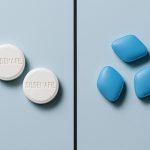For a long time addiction was treated in a vacuum. Treatment programs put people into systems which dealt only with breaking the cycle of their drug use which at the time didn’t take into account the full picture of what was going on with that person’s mental health. Presently it is seen that this narrow approach doesn’t work out as well as once thought. What professionals are finding is that addiction and mental health issues are very much related and when they present together it is called a dual diagnosis.
Understanding and addressing this connection is critical for long-term recovery, which is why dual diagnosis treatment has become a cornerstone of modern rehabilitation approaches.
What Is Dual Diagnosis?
Dual diagnosis is a term used for when a person is dealing with a mental health issue at the same time as a substance use issue. For instance professionals see people who are dependent on alcohol also dealing with issues of depression or anxiety.
This is a very large issue which does not get as much attention as it should. From national health reports it is shown that almost 40% of people who have a substance use issue also have at least one other mental health condition.
The issue is that each problem may be made worse by the other. It is seen that untreated depression may cause a person to use alcohol as a way to deal with symptoms which in turn may heighten feelings of hopelessness. Also it is noted that substance abuse may change brain chemistry in ways which in turn may bring out or increase anxiety, PTSD, or bipolar disorder.
Why Treating Both Conditions Matters
In many cases it is seen that addressing one issue at a time and leaving the other out does not work for a long-term solution. For instance a person may stop using drugs but still not seek help for an also-present mood issue which in turn may cause a relapse. Also there are times when all the focus is put on overcoming depression or anxiety while ignoring the drug use, which can result in the addiction growing out of control.
In the past there were little to no results for dual diagnosis but today there is great hope. The modern approach is to address both issues at the same time which in turn gives the individual the tools to identify what sets them off, develop better coping skills, and provides a recovery plan that looks at the whole person not just a piece of the puzzle.
Common Mental Health Disorders Seen in Dual Diagnosis
In that any mental health issue may present with addiction at the same time, what has been observed is that some conditions present themselves more often in dual diagnosis cases:
- Depression – presents as persistent sadness, loss of interest, and fatigue, and also has a high comorbidity with alcohol or opioid misuse.
- Anxiety Disorders – issues like chronic worry, panic attacks, and social anxiety which in turn may cause people to use substances as a form of escape.
- Post-Traumatic Stress Disorder (PTSD) – some trauma survivors turn to drugs or alcohol as a way to deal with flashbacks or intrusive thoughts.
- Bipolar Disorder – individuals may engage in risky behaviors which may include substance abuse during manic and depressive episodes.
- Schizophrenia – people may look to drugs as a way to deal with hallucinations or disordered thinking.
Recognizing those connections allows clinicians to develop recovery programs at the same time for each aspect of the issue.
What Dual Diagnosis Treatment Looks Like
Comprehensive dual diagnosis treatment is also a very individualized care plan. It may include a mix of interventions which are put forth by:
- Medical Detox – done safely and under supervision.
- Psychological Assessment – identifying mental health issues through in-depth evaluation.
- Pharmacotherapy – prescribing meds when appropriate to stabilize mood or reduce cravings.
- Cognitive Behavioral Therapy (CBT) – helping individuals identify negative thought patterns and put in place better coping skills.
- Group and Family Therapeutic Approaches – building strong support systems for long-term healing.
- Aftercare Planning – developing strategies for post-treatment support.
Through use of these tools, treatment professionals focus on how they get into the mind of the individual and see how their mental health issues play out with their substance use issues and also what can be done to manage both for a better health-based future.
Breaking the Stigma
For a long time one of the great barriers to dual diagnosis recovery has been stigma. People with addictions or mental health issues have been labeled and blamed instead of treated with compassion. This stigma also causes people to not seek out help or to admit that they require support.
Education and awareness are the tools used to break down these barriers. If society can see that addiction and mental health issues are health issues, not a result of personal failure, more people will come forward for help.
Why Choosing the Right Treatment Center Matters
Not all treatment centers focus on dual diagnosis. Some instead may concentrate only on addiction and others primarily treat mental health issues. Entering a program which does both is essential.
Resources such as Awkward Recovery provide in-depth information and support for those that are looking to get through this process. By connecting to professionals that have experience in dual diagnosis issues, patients are placed into programs that are just right for them.
A Holistic Path to Healing
Recovery is beyond just the removal of the substances from a person’s life – it is about helping them build a new life which they will look forward to. In the case of dual diagnosis the approach takes into account the whole range of an individual’s issues and works to heal both the mind and the body.
By providing medical treatment, therapy, and emotional support in one setting, this approach helps people take back control of their lives, improve mental health, and also see a reduced chance of relapse.
Final Thoughts
Addiction and mental health issues go hand in hand which is why many times addressing one without the other is fruitless. That is the reason dual diagnosis treatment has become a key approach for getting individuals out of the cycle of drug use at the same time as helping them with their mental health issues.
Through care, professional support, and the right resources recovery is possible. Those that take the step into integrated treatment give themselves the best chance at long-term change, healthful relationships, and a better future.
Lynn Martelli is an editor at Readability. She received her MFA in Creative Writing from Antioch University and has worked as an editor for over 10 years. Lynn has edited a wide variety of books, including fiction, non-fiction, memoirs, and more. In her free time, Lynn enjoys reading, writing, and spending time with her family and friends.















